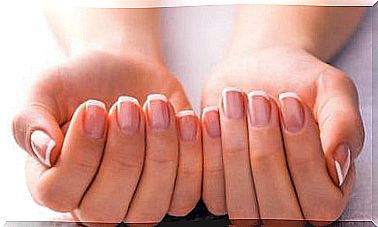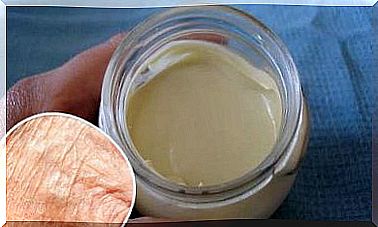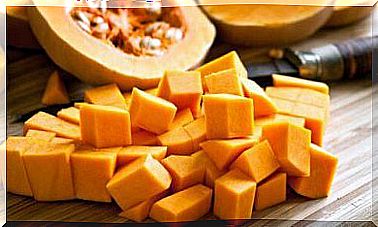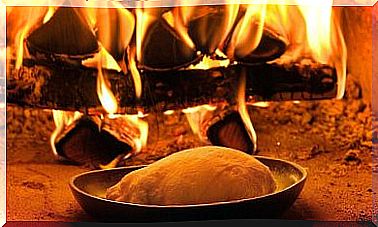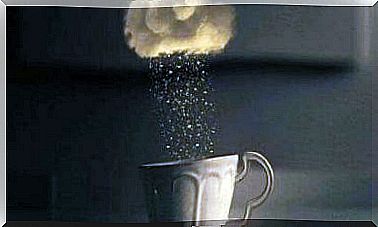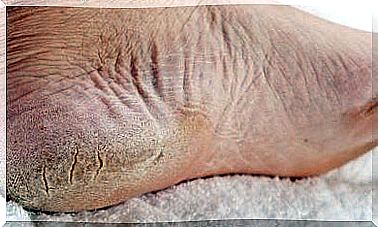Can Diet Improve Hydradenitis Suppurativa?
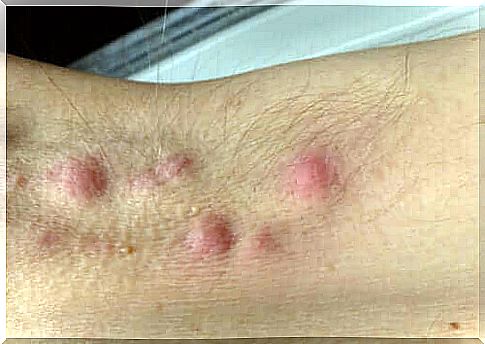
Healthy diets are the best allies for the prevention and treatment of many diseases. So why not consider a diet for hidradenitis suppurativa?
The treatment of this skin disease depends on a therapeutic guide where the patient’s diet is part of the non-pharmacological measures according to the Argentine Society of Dermatology .
The studies do not provide much evidence. However, omitting some dairy products, refined foods, sugar and yeast can improve the symptoms.
Some supplements, such as vitamin D, zinc and turmeric, can also be beneficial. So let’s take a look at how a diet for hidradenitis suppurativa is helpful.
What is hidradenitis suppurativa?
Hidradenitis suppurativa (HS) is a chronic, recurrent, autoinflammatory skin disease that impairs quality of life. The hair follicles become dense and form irregularities that become inflamed and cracked.
We also know it as sweat gland inflammation because the skin lesion appears under the skin. They are common, especially in areas where it rubs, such as in the armpits and groin.
It has a worldwide prevalence of 0.05% to 4%, and women between the ages of 20 and 40 are most likely to suffer from it. Experts are not sure of the cause of the blockage. However, genetics, obesity, skin that rubs and smoking are among the risk factors.
How can diet help treat hydradenitis suppurativa?
Dr. Lawrence Gibson says that what you eat can have an effect on hidradenitis suppurativa. Nutritious, balanced diets can control obesity and obesity, both of which are risk factors.
There is not enough evidence that there is any specific diet to cure hidradenitis suppurativa. However, patients and physicians know about the importance of nutrition management in the control of this pathology. Here we will go through some of the recommendations and advances.
A milk-free diet
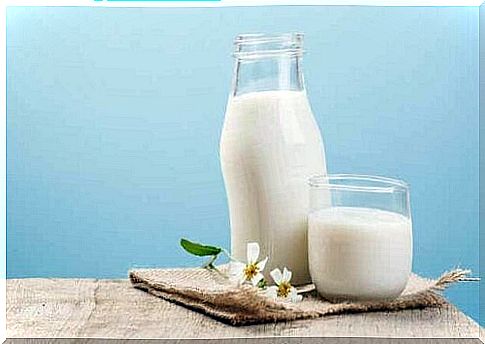
In the Journal of the American Academic of Dermatology, researchers emphasize that dairy products can generally contribute to acne and HS. By introducing a dairy-free diet in 47 patients with the disease, 83% of cases were improved. Of the remaining 17%, none of them worsened.
Dairy products contain casein, whey and hormones known as androgens, which clog the hair follicles. The researchers concluded that a milk-free diet can reduce new lesions and reduce the symptoms of hidradenitis suppurativa.
Therefore , the recommendations include excluding milk, fresh cheeses, ricotta, cottage cheese, mature cheeses, dairy products and yoghurt from the diet. In the same way, you should stay away from, among other things, whipped cream, buttermilk and butter.
A diet with a low glycemic load
A group of experts suggested that foods rich in simple carbohydrates, such as soda, sweets and ice cream, increase blood sugar levels. Consequently, the secretion of insulin also increases. This leads to an increase in androgens and an increase in the incidence of HS.
To reduce the glycemic load on your diet, there are several things you should remove from your diet. These include sugar, desserts, sugary drinks, sweets, syrup, corn syrup, chocolate and cereals. Similarly , you should increase your fiber intake by consuming vegetables, legumes and fruits.
A wheat- and yeast-free diet
Experts have linked wheat and yeast to an increase in the incidence of HS symptoms. The production of beer, wine and CO2 gas for bread dough uses brewer’s yeast. Several researchers found that this yeast causes a reaction in the immune system and produces intolerance.
A small study consisting of 12 patients suffering from hidradenitis suppurativa who went on a yeast-free diet for 1 year, showed that the lesions disappeared. In addition, their quality of life was improved. However, when patients ingested wheat or beer again, symptoms returned.
Unfortunately, the size of the study and the lack of a control group do not allow generalization of the results. It is also uncertain whether the yeast problem only occurs in patients with wheat intolerance.
Similarly, the recommendations include eliminating fermented alcoholic beverages, such as beer and wine. Also bread, cakes, pizza, soy sauces, dry soups and all foods that contain wheat and yeast.
The Mediterranean diet
The journal Nutrients shows the results of a study of 41 patients with HS who had a small intake of food that is typical of the Mediterranean diet. At the same time, another group of patients took this who did not suffer from this condition.
The Mediterranean diet includes vegetables, fresh fruits, whole grains, beans, extra virgin olive oil, fish and seafood. At the same time , it reduces the intake of refined and processed foods. It has a low glycemic load and a high fiber content.
A low calorie diet
In some studies, it was observed that many patients with HS are overweight, and there is a direct link between body mass index and the severity of the disease. Dr. Boer published that low-calorie diets that promote weight loss reduce the incidence of the disorder.
In a retrospective study of obese patients undergoing bariatric surgery, it was found that those who reduced 15% of their weight reduced the severity of HS.
On the other hand, low calorie diets include foods high in fiber as they produce satiety. Products with a high glycemic load, such as sugar and refined sugar, are also excluded.
A vegan diet
Several studies link good gastrointestinal function with skin health. This is related to microorganisms that grow in the intestines (intestinal microbiota). People with a greater diversity of microbiota are the ones who eat more vegetables.
The North American Guidelines for the Clinical Management of HS published that patients with hidradenitis suppurativa and low intake of vegetables had a lower diversity of microbiota. The control group without HS and a diet rich in vegetables stood out because they had a greater diversity.
On the other hand , it seems that omitting vegetables that belong to the sweet potato family can improve the symptoms, as occurs in some autoimmune diseases. These include potatoes, eggplant, tomatoes and peppers. However, there are no studies that support this information.
What supplements can help support the diet for hidradenitis suppurativa?
Although there is little progress in clinical trials with the use of supplements in the treatment of hidradenitis suppurativa, some specialists recommend them as adjuvant therapy.
Zinc
Brocard and Dréno found that zinc gluconate at a dose of 90 milligrams per day worked to restore innate immunity in 22 patients with advanced stages of HS. At the same time , other professionals recommend 30 to 60 milligrams per day to improve the inflammatory process of acne.
Vitamin D

Vitamin D also plays an important role in reducing inflammation, and experts have discussed its use when it comes to HS. In fact , one group of researchers observed that 63% of patients with HS and vitamin D deficiency had a slight improvement after taking supplements.
They also recommend that they ingest vitamin D through food or as a supplement rather than through sun rays, as it can worsen the clinical picture.
Turmeric
Some studies refer to the capacity of turmeric as an antioxidant, anti-inflammatory and regulator of the immune system. The active compound, curcumin, modulates inflammation-producing compounds known as cytokines.
Therefore , turmeric can improve the inflammatory process in hidradenitis suppurativa. Although there are no definite conclusions about dosage and composition, experts acknowledge the positive effect.
There is not just one diet for hidradenitis suppurativa
We can conclude that if you have hidradenitis suppurativa and you are thinking of changing your diet, it is best to consult a dermatologist immediately. That way, the professional can give you advice on what type of diet is best for the phase of HS you are in.
It is also a good idea to consult a nutritionist to determine the nutritional status and proper food in cases of food intolerance. At the same time, the professional should consider special forms of preparation to increase the intake of fiber and zinc.


